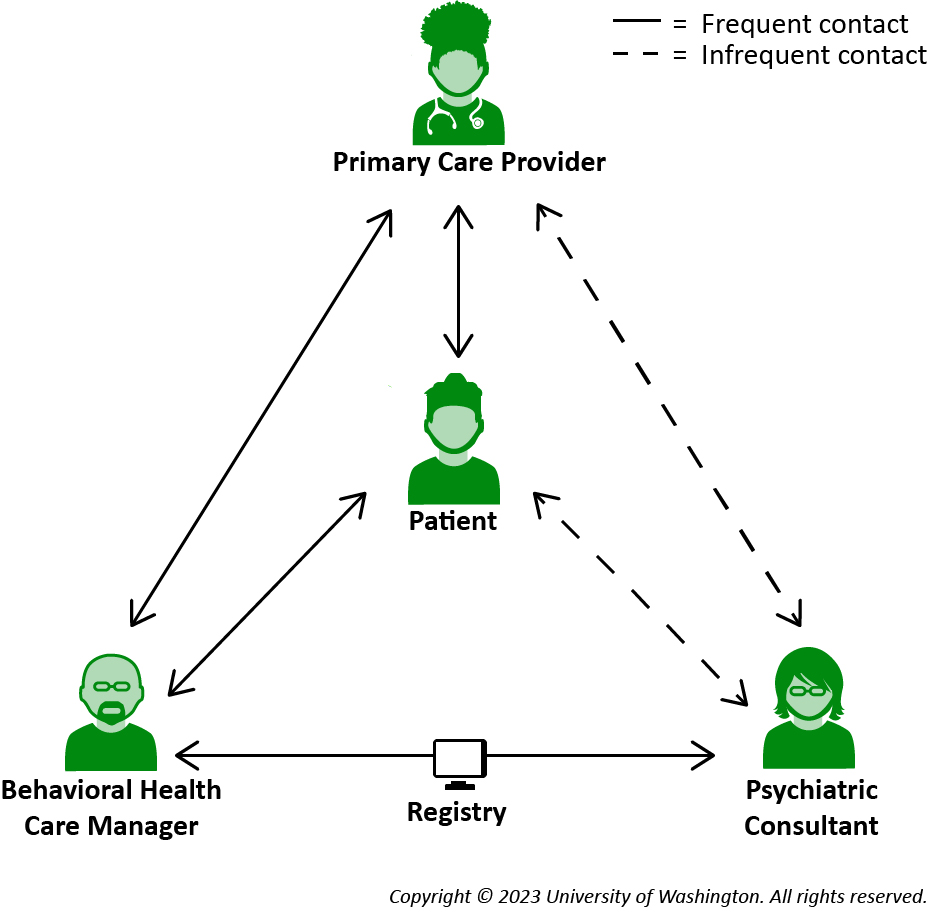Collaborative Care (CoCM) is a specific type of integrated care developed at the University of Washington to treat common mental health conditions in medical settings, like primary care. Behavioral health conditions such as depression, anxiety, PTSD, alcohol or substance use disorders are among the most common and disabling health conditions worldwide. Based on principles of effective chronic illness care, CoCM focuses on defined patient populations who are tracked in a registry to monitor treatment progression. The treatment plan focuses on measurement-based treatment to target, to ensure the patient’s goals and clinical outcomes are met.
Collaborative Care Team
CoCM requires a team of providers. Trained Primary Care Providers (PCP) work with embedded Behavioral Health Care Managers (BHCM) to provide evidence-based medication or psychosocial treatments.
The PCP and BHCM are supported by a Psychiatric Consultant who meets regularly with the BHCM for a Systematic Caseload Review (SCR), during which they consult on patients and adjust treatment for those who are not improving as expected. A registry is used to manage caseloads and track patient outcomes.

Collaborative Care Outcomes
Resources
Use our Resource Library to find materials about Collaborative Care, have our Implementation Guide take you through the process of implementation, or browse the following pages to better understand the model.